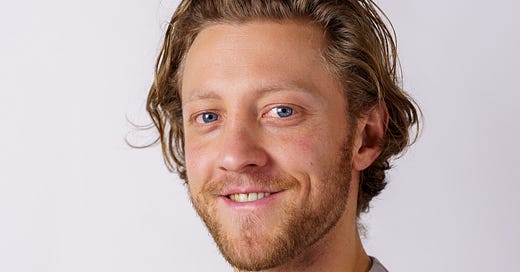Confirmation Bias: Believing What You See, Seeing What You Believe.
The underlying tendency to give greater credence to evidence that fits with our existing beliefs.
Wisdom
One piece of wisdom that motivates, encourages and empowers you to grow.
“The eye sees only what the mind is prepared to comprehend.” -Robertson Davies
Insight
One insight that helps you deeply understand a situation, idea, or concept.
What is Confirmation Bias?
"Confirmation bias is the art of finding evidence to support what you already believe, rather than seeking the truth." -Shane Parrish
Confirmation bias is a cognitive tendency we employ to process information quickly. It involves favouring and actively seeking evidence that supports our current beliefs while disregarding or dismissing contradictory information. This mental shortcut can significantly impact our decision-making and shape our perceptions.
Consider our ancestors facing a dangerous wild animal. In such situations, they had to rely on past experiences and instincts, using mental shortcuts like confirmation bias to make rapid judgments. This method was crucial for their survival.
Confirmation bias also serves as a defence mechanism for our ego. We naturally have a desire to be right, and challenging our own beliefs can be emotionally challenging. To avoid this discomfort, we often unconsciously seek out information that reinforces our existing beliefs while disregarding evidence that contradicts them.
Overcoming Confirmation Bias
To overcome confirmation bias, we need self-awareness and a willingness to question our beliefs. We should actively seek contradictory evidence and consider different viewpoints. By exposing ourselves to diverse perspectives, we can expand our understanding and reduce the impact of confirmation bias.
Additionally, critical thinking plays a vital role. We must objectively evaluate the quality of evidence by questioning its sources, assessing credibility, and exploring alternative explanations. This approach helps us overcome the limitations of confirmation bias.
Examples of Confirmation Bias
These three examples demonstrate how confirmation bias can impact various aspects of our lives, from belief systems and decision-making to social interactions and personal judgments.
Politics: Political parties often reinforce confirmation bias by encouraging individuals to seek information within their own ideological group, rather than considering diverse perspectives for problem-solving.
Music: Our music preferences exhibit confirmation bias as we tend to favour songs that align with our existing tastes. Familiar songs with anticipated beats and patterns provide a sense of satisfaction.
Investing decisions: Investors with strong preconceived notions about a company or a stock may focus on information that confirms their beliefs, such as positive news or successful performance while dismissing or downplaying negative information.
Living Legend
One inspiring story of a famous person who is still living for doing something exceptionally well.
Dr. Jane Goodall
One living legend who embodies the qualities of self-awareness, open-mindedness, and the ability to overcome confirmation bias is Dr. Jane Goodall. Renowned for her groundbreaking research on chimpanzees and her extensive conservation efforts, Dr. Goodall has dedicated her life to understanding and protecting the natural world.
Dr. Goodall's journey began in 1960 when she studied chimpanzee behaviour in the forests of Gombe, Tanzania. Instead of observing them in a controlled lab, she chose to immerse herself in their natural habitat, gaining deep insights into their social interactions and emotions.
During her research, Dr. Goodall demonstrated her ability to challenge her own beliefs and question established scientific ideas. When she observed chimpanzees using tools, previously thought to be unique to humans, she didn't dismiss it but instead carefully documented and analyzed her observations, seeking more evidence. She actively sought diverse perspectives and engaged with experts from various fields, expanding her understanding of chimpanzee behaviour and its implications for human evolution.
Dr. Goodall's objectivity in evaluating evidence is evident in her consideration of sources, credibility, and alternative explanations. She emphasized rigorous scientific methodology to ensure her research was free from personal biases. She encouraged critical thinking among her peers and inspired future generations to approach their work with objectivity.
Her dedication to environmental conservation showcases her commitment to overcoming confirmation bias. Witnessing the destruction of chimpanzee habitats, she became an advocate for environmental protection. She engaged with communities, governments, and organizations, presenting evidence-based arguments and working towards sustainable solutions.
Dr. Goodall's inspiring journey exemplifies how self-awareness, open-mindedness, and challenging beliefs lead to discoveries and positive change. By seeking contradictory evidence, considering different viewpoints, and evaluating evidence objectively, she has advanced our understanding of chimpanzees, human evolution, and the importance of environmental conservation. Her legacy motivates us to confront confirmation bias, embrace diverse perspectives, and strive for a harmonious relationship with our planet.
Final Thoughts
Questions for you to ponder and think carefully about.
Self-awareness and conscious training are key to overcoming confirmation bias. Here are three questions to ask yourself when encountering a story to avoid falling prey to confirmation bias:
Did this story confirm any of my existing beliefs? If so, which ones?
How many people in my circle share the same belief?
Which facts could someone use to argue against my beliefs?
Cheers,
Ben Mumme
Founder and CEO of Living Your Greatness
P.S. If you're interested in becoming a sponsor for an upcoming newsletter issue, I invite you to get in touch.
Notes
Visit the archive and check out past newsletter issues
Subscribe to my newsletter to receive valuable wisdom, timeless insights, and inspiring stories of world-class living legends
Listen to the latest podcast episode:
In Gold We Trust l Austrian School of Economics l Ronald Stöferle
Read the latest blog article:



